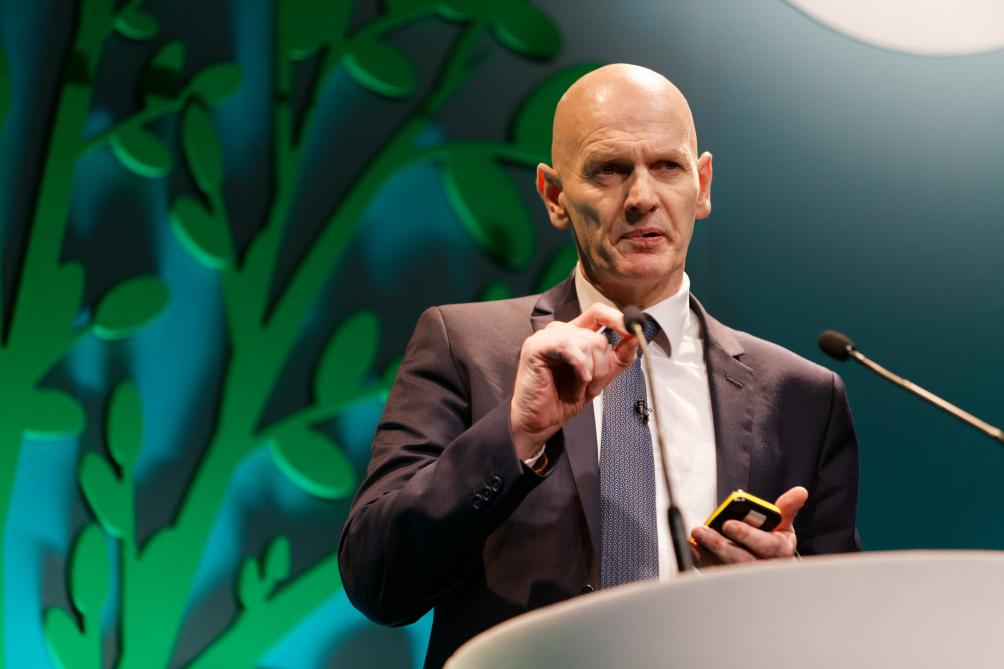Leading Food Fraud Scientist Calls for Audits at Production and Processing Level
4th January 2018 by OFC Press Team

Food integrity is our biggest challenge, said Professor Chris Elliott OBE, at the Oxford Farming Conference. The professor from Queens University, Belfast, who investigated the Horsegate scandal and is the leading expert on food fraud, said the more pressure the global food production system is under, the more likely food integrity is to be compromised.
Professor Elliott defined his six principles of food integrity - what he believes every human has a right to - which include safe, authentic, nutritious food produced from a sustainable source and to ethical standards in an environment that respects the environment and those producing it.
With a rapidly growing population, the world is under increasing strain to produce food, and there is a hugely complex supply chain, he explained. As the demand mounts, so does the potential for producers and processors to cut corners. In the UK, one person in 66 suffers from a food-borne illness, compared to one in six in the US and it's potentially higher in the rest of the world.
"So in our post-Brexit days when you start to think about comparing food safety systems, there's obviously concern there," he said.
Food fraud is becoming much more internationalised, he continued. Crime gangs are growing all over the world, the Mafia are reportedly taking over some parts of Italy.
“You can make more money in crime in food than you can in narcotics,” said Professor Elliott. “It is not something that is going to go away. Fraud can start to destroy entire sectors of the industry. When people read about things in the newspaper, they start to lose trust. I do fear that we in the UK may be exposed to greater threats going forward and as a result the public will lose further trust in our national food supply system.”
Another aspect of food integrity Professor Elliott highlighted was lack of nutrition and hidden hunger, due in part to food produced on poor soil. He explained that we live in a world in which, for the first time in the history of the planet, there are more overweight than underweight children. One billion people on the planet are undernourished, two billion are over-nourished. A further two billion suffer from hidden hunger, whereby they think they are eating a nutritious diet but due to how the food is produced, it is lacking vital micro-nutrients such as trace metals, fatty acids and soluble vitamins. Therefore, according to his statistics, five billion out of a 7.5 billion world population have some nutritional issues.
Professor Elliott suggested some possible measures to mitigate the problems undermining food integrity including the importance of education about nutrition and healthy eating from a young age, to the more complex technology of blockchain, and handheld scanners which could give a ‘fingerprint’ of a product to identify its nutritional and ingredient content in the Cloud within five minutes.
With a complex supply chain worldwide, the challenge is how to monitor and maintain food integrity, he stated. Starting at home, Professor Elliott called for a system that audits at both producer and processor level, but said that this is not a quick fix.
“There have been many calls for a major rethink about how food is produced and distributed but the means of implementing such major changes is far from clear and ultimately who would take such decisions? To my mind this could only be achieved at a national level and then only by a country working together across a diverse and fragmented political and economic spectrum,” he said.
“The level of changes needed are substantial, the level of investment will be significant but the potential to have an entire population eating food that fulfils all six principles would undoubtedly be akin to a new industrial revolution. Paradoxically the first two industrial revolutions drove people away from the land, this one could help bring them back again.”
Watch Professor Elliott's speech.
The Science Lecture was sponsored by law firm Burges Salmon.
